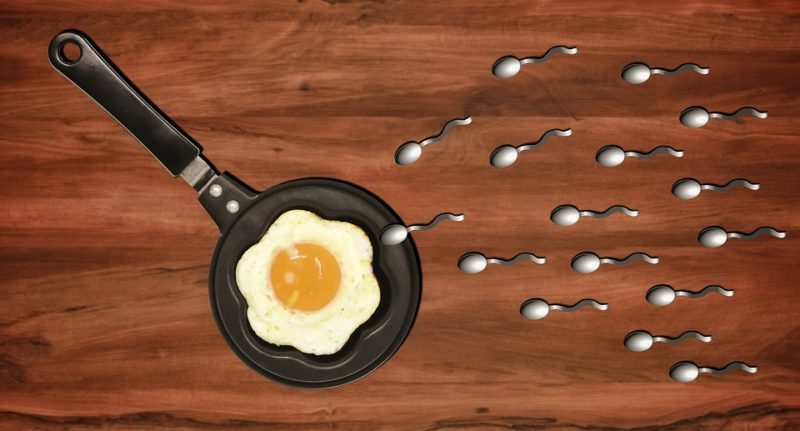Are you wondering if how does egg donation work? Someone fertile donates her egg to an infertile woman to help her get pregnant or oocyte. It’s known as assisted reproductive technology.
After the donor’s eggs are harvested and fertilized in a lab, the recipient receives them and undergoes in vitro fertilization with the fertilized ones. To do this, doctors use medical techniques like vitro fertilization.
Doctors at the hospital often freeze embryos to utilize in the future or to implant in another woman. In addition, those women with ovarian failure or old age can benefit from egg donation. Egg donation is a treatment option offered by nearly all US fertility clinics, according to a 2014 study published in the journal Fertility and Sterility. The study found that the treatment led to a successful birth 49.4–50% of the time.
The egg donor is given hormone injections to encourage repeated ovulation. A large number of eggs can grow thanks to the injections simultaneously instead of one egg being released each month naturally. There is so much more to know about how it works, so delve deeper!
Expectations
The fertility center’s specialists will undertake a thorough search and carefully handle the legal requirements to find a suitable donor. Most donors must take medication to stop their regular menstrual cycle before surgery can begin. Some of the possible side effects to expect by the egg donors include the following:
- Throbbing pain in the brain
- Hot flushes
- a feeling of dread
- Aches and pains in various parts of the body’s muscles
How Egg Donation Works: Things To Consider
So, how does egg donation work? Here are the following things to consider:
#1. Before the egg donation
The donor’s ovaries will be administered with fertility drugs to help them produce a large number of eggs simultaneously. Hyperstimulation is the medical term for what’s going on here. Subcutaneous or muscular injections must be self-administered by donors. For some women, side symptoms like bruising or bleeding where the injection was made, mood swings, or sensitive breasts are a real possibility. A life-threatening illness in women known as OHSS is rare yet affects thousands of women each year.
This takes place when the ovaries produce an excessive quantity of eggs for the person’s age. Women who have symptoms of OHSS may need to be admitted to the hospital for observation. Preventing pregnancy means not having sex for as long as the eggs are not removed or using barrier contraception like a condom.
A battery of testing, including blood tests and ultrasounds, will be performed on the donor to see how the medications are affecting them. Then, just the egg retrieval surgery, the egg donor will be given the last injection to get her ready for the process.
To obtain the donor’s eggs, the doctor will perform a transvaginal aspiration of ovarian cysts. Then, each follicle will be probed using the ultrasound probe, and you will remove an egg with a needle. You may also want to know what is egg donation.
#2. During extraction
During the 30-minute surgery, the doctor may administer sedatives, anesthetics, or painkillers to the donor. Donors do not have to stay overnight at the hospital or clinic because this is a minor surgery. Read how long is the egg donation process.
#3. After donation
Women who donate transvaginal need to relax for a few days after that to allow the ovary to recover fully. Others are back to their regular routines the following day. Depending on the program, some donors may receive follow-up care. For example, women who have undergone egg donation surgery may benefit from working with a therapist or counselor afterward.
Legal Implications
Depending on where you live, egg donation may or may not be legal. The anonymous donation of a woman’s eggs is permitted in the United States. It’s also okay to get paid for egg donations. All egg donors must sign a contract at an egg donation facility, indicating that they don’t have legal rights or duties to any children born as a result of the donation. She will be identified as a child’s birth mother in legal papers even though she has no biological connection to them.
Donor Identity
Donors in the US have the option of remaining anonymous. They may also be acquainted with the recipient. When it comes to egg donations process, it’s common practice to keep the egg donor’s identity a secret.
You may provide egg recipients with specific information, but they will never meet or know who the donor is. But some schemes allow donors and recipients to meet if both are on board. Once the recipients’ children reach a particular age, they may consent to contact donors on their behalf. Another possibility is that the giver and others who will benefit from their generosity already know one other. For example, a woman may have asked a close friend or relative for an egg donation. My friends, you may be interested to learn about how much for egg donation.
It’s A Wrap!
After you know how does egg donation works, you might be worried if it will be a success. Age of egg donor, quality of sperm, egg extraction procedure, and general health of recipient all have a part in the success of the treatment. To deal with any underlying emotional issues, recipients should seek counseling and legal assistance to ensure that their rights and the rights of any future children are protected.

